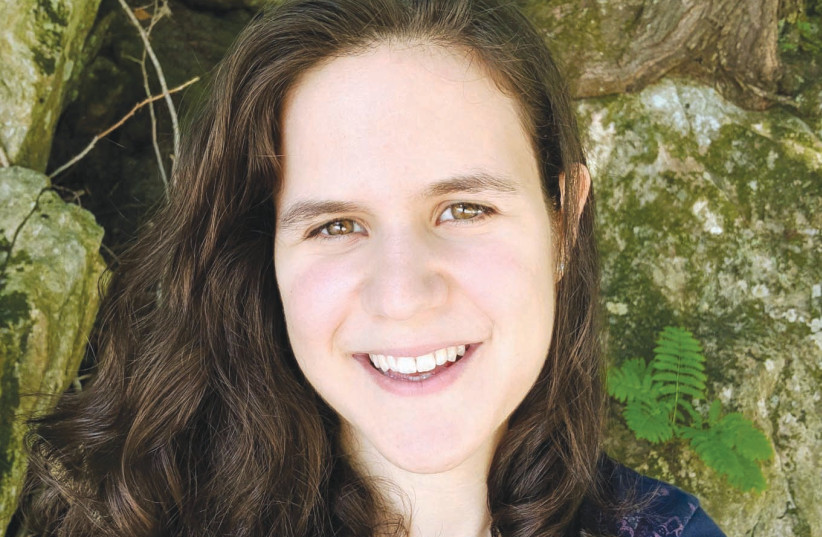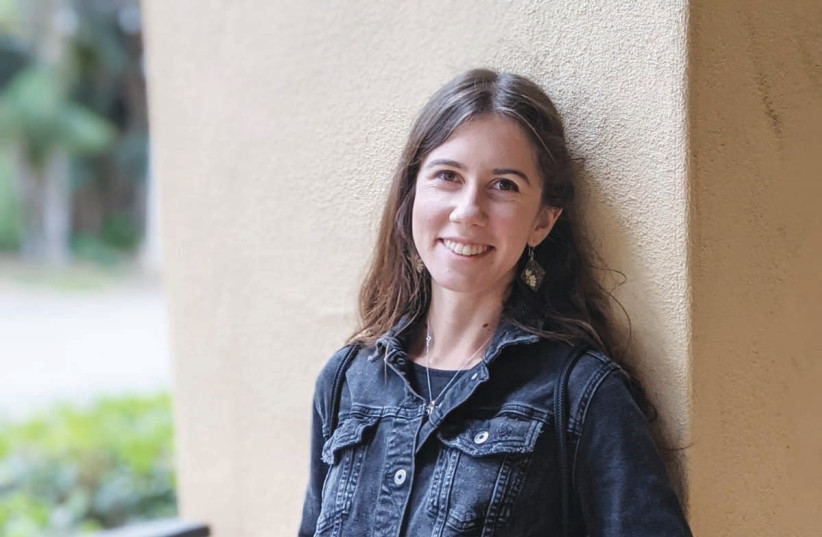With the largest number of start-ups per capita in the world, Israel has deservedly earned the sobriquet of “Start-Up Nation.” How has the country’s spirit of innovation translated into employment opportunities for recent college graduates in hi-tech?
Following are three profiles of recent immigrants who have parlayed their technical expertise into employment in Israel’s hi-tech sector.
Finding employment before aliyah
“The world changed a lot during Covid, and I realized that life is short,” says Keren Starobinski, 24, who made aliyah several weeks ago from Newton, Massachusetts, to Tel Aviv. “I’ve always dreamed of living in Israel, and I felt it was the right time to move. I started working on my dream.”
Starobinski grew up in Newton and attended Maimonides School in Brookline. She studied at MIT, majoring in electrical engineering and computer science with a double major in economics, and earned her master’s degree in February 2020 in engineering and computer science.
Once she determined that she wanted to make aliyah, she reached out to Nefesh B’Nefesh and began participating in online Zoom seminars on aliyah.
“I tried to attend every seminar, and I read articles about tech in Israel. It was important for me to find a job before I moved,” says Starobinski.
During one of the Zoom aliyah seminars, she says, one of the participants mentioned that they had reached out to Aleph VC, an early-stage venture capital fund that partners with Israeli entrepreneurs to build large companies, and successfully found employment through them.
“I did the same thing,” says Starobinski, and they connected me with companies and recruiters in Israel.”

She went through a round of Zoom interviews with various companies, and was hired by Lemonade, a well-known insurance carrier that uses artificial intelligence and chatbots to process insurance claims.
The company has offices in Tel Aviv, and Starobinski began looking into living in the Tel Aviv area, locating synagogues in the area, and finding other young adults with similar interests.
She arrived in Israel on July 7 and loves the energy and warmth that she has found in Israel. She began working at Lemonade two weeks ago and says that the people have been “super welcoming.”
The Nefesh B’Nefesh team, says Starobinski, was extremely helpful in enabling her to find a job before she came, which was essential to her. Since her arrival, she has also used its hotline service to get assistance in solving various issues that have come up.
Starobinski advises hi-tech graduates considering aliyah to network with as many people as possible before they move.
“Be as proactive as you can before you get here,” she says. “Networking is extremely important here.”
Socially, Starobinski has found many events for young olim in tech. She adds that there is a Facebook page for young olim in tech where people ask questions, and helpful information is provided.
“It is very possible to move,” she says. “Don’t give up on your dream, if it is your dream. People want to help. Don’t be afraid to go for it!”
The remote worker
“Aliyah was always a goal for me,” says Lilly Liebman, 22, who made aliyah this summer from San Diego to Givat Shmuel. “My family is very Zionistic. I came here for seminary, and I really enjoyed it. Aliyah was a goal I had, and I wanted to give it the best shot I could. I figured the best chance for me to come here and make everything work would be after college.”
Liebman studied at Touro College in New York and graduated this past June with a degree in computer science. During her final semester in college, she began to apply for aliyah. At the same time, she began to intern remotely for Indicative, a New York-based company that provides product analytics.
She asked the people at Indicative if they would allow her to keep her job and work remotely from Israel.
“They are a small tech company and are very sweet and understanding, and had the flexibility to allow me to come here. Their accepting me made a lot of things very easy,” says Liebman.

She lives in Givat Shmuel with friends and works remotely as a full-stack software engineer for Indicative. She works from 9 a.m. to 5 p.m. on Sundays and Tuesdays, and from 9 a.m. to 1 p.m. and from 5 p.m. to 9 p.m. on Mondays, Wednesdays and Thursdays.
“Israel is great,” she enthuses. “I am so happy.”
Liebman says that her contact with Nefesh B’Nefesh has increased since she came. She has called the hotline and emailed it several times regarding help with appointments and other technical issues.
Like Starobinski, Liebman says that aliyah takes effort but is worthwhile. “If you want to do it, try your hardest at it. It is a process. I find it extremely rewarding, and I am super glad that I made it. You can make it work.”
The retrainer
Gavin Coulson, 27, was born in New Mexico and grew up in Colorado. He attended the University of Colorado at Boulder, with a double major in Japanese and Jewish studies.
He came to Israel in 2017 and spent four years participating in various study programs at Tel Aviv University, Hebrew Union College and the Pardes Institute of Jewish Studies.
Coulson had initially converted to Judaism under Reform auspices, and later underwent an Orthodox conversion with Rabbi Shlomo Riskin in Efrat.
He had served in the US Air Force at Peterson Air Force Base in Colorado Springs and worked as a butcher, both in Israel and in the United States.
Coulson returned to the US in March 2020 and worked at Whole Foods before officially making aliyah in August 2020. He underwent a symbolic third conversion through the Chief Rabbinate prior to his marriage to Sapir, an Israeli from Kiryat Gat, in December.
He says that he had initially considered becoming a Jewish chaplain in the US Military but decided to concentrate on hi-tech instead. He studied the Python programming language and taught himself Java script.
He then learned of a four-month, intensive course in computer programming offered by the Israel Innovation Authority at a discounted price. He took the course and was recently hired by accessiBe, an Israeli technology company that works to ensure Web accessibility through artificial intelligence.
Coulson trained as a full-stack software developer, and currently works as a Web accessibility expert with the company.
“It’s a great environment. A majority of the workers are olim from Anglo countries, and it’s a very cool place,” he says. Coulson speaks Hebrew fluently, though he says, smiling, “I have a very thick American accent.”

Coulson and his wife live in Kiryat Gat, a 40-minute train ride from the company’s Ramat Gan headquarters. Nefesh B’Nefesh, he says, “was very supportive of me, all the way through, up until I was safe in the taxi going to Kiryat Gat.”
He says that people considering retraining should make sure that they have the financial resources to support a career change, because “there is not a lot of time to make money during retraining.”
He also suggests finding training programs that offer internships, which is very important in Israel. “I have learned that it’s less about your degree and far more about what you can do.”
He adds that there is a great deal of competition in the junior level of the job market.
“Be prepared emotionally for a lot of rejection,” he says.
Nevertheless, he says, the ability to speak English at a native level is a huge advantage in hi-tech today. “More and more tech companies are beginning to require native English, which is a huge plus for anyone coming from an English-speaking country.”
Three new olim. Three hi-tech workers. One hired before aliyah, one working remotely from Israel, and one who retrained to become a software engineer. Keren Starobinski, Lilly Liebman and Gavin Coulson are proving that aliyah dreams in the Start-Up Nation can come true.
This article was written in cooperation with Nefesh B’Nefesh, in conjunction with the Ministry of Aliyah and Integration, the Jewish Agency, Keren Kayemeth LeIsrael and JNF-USA.
